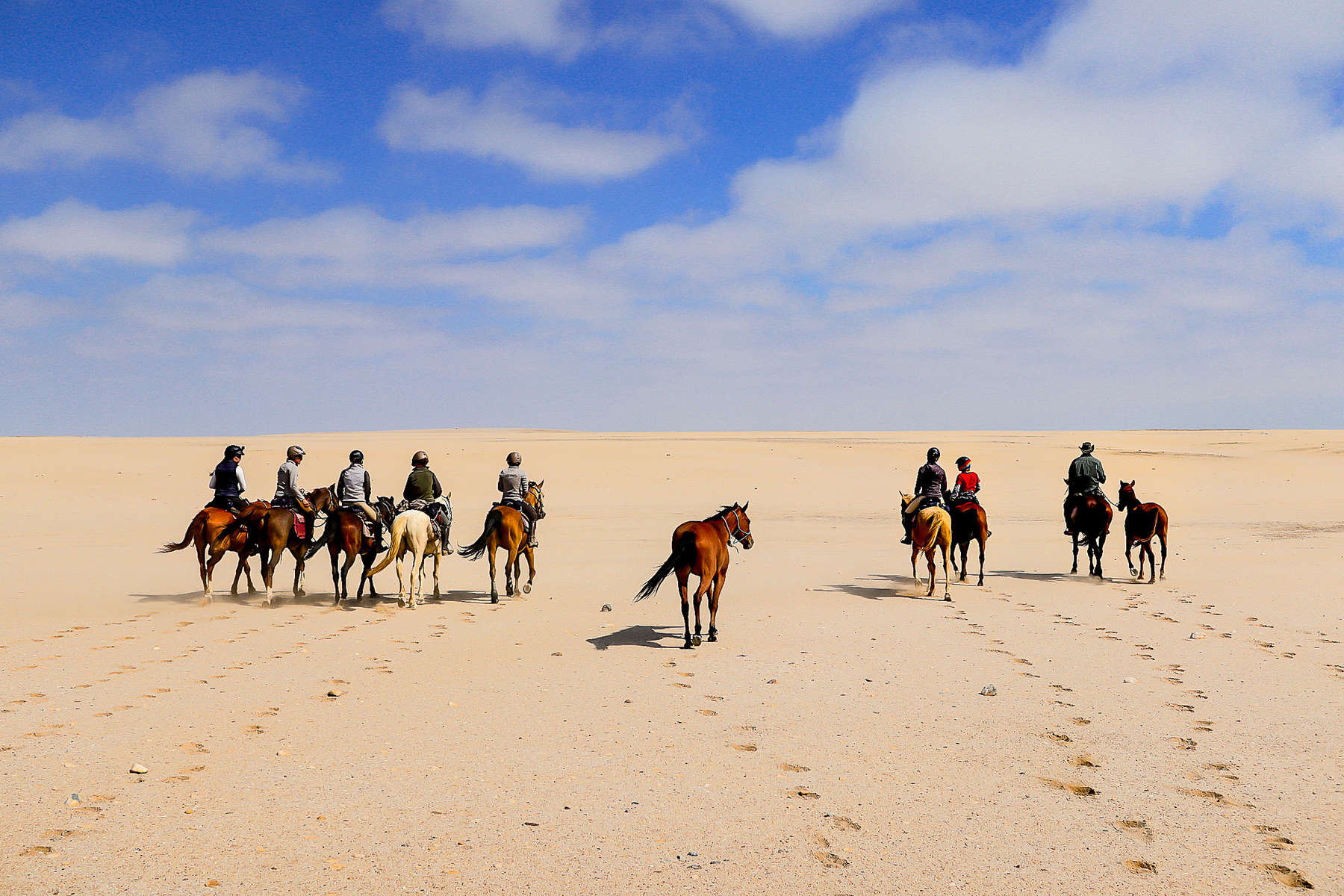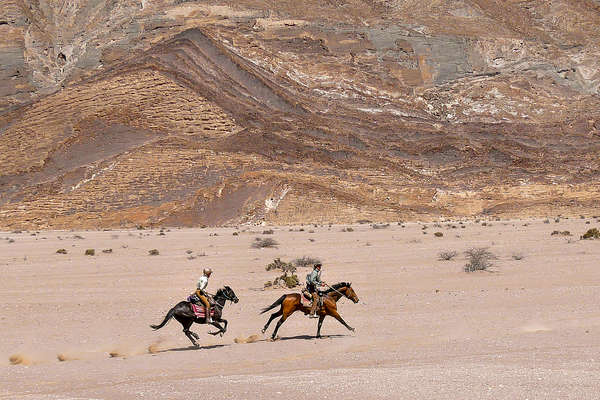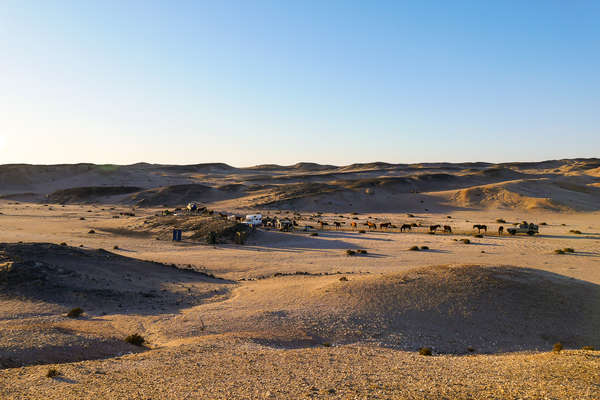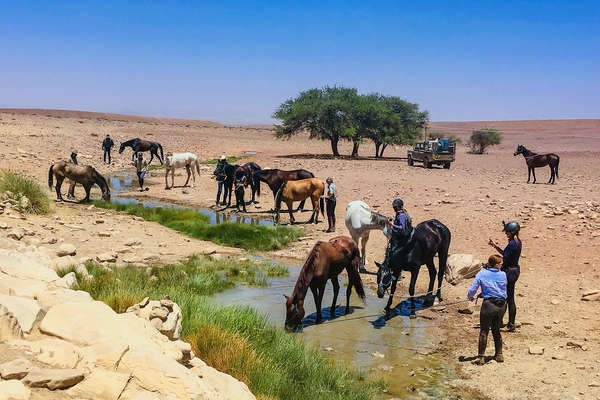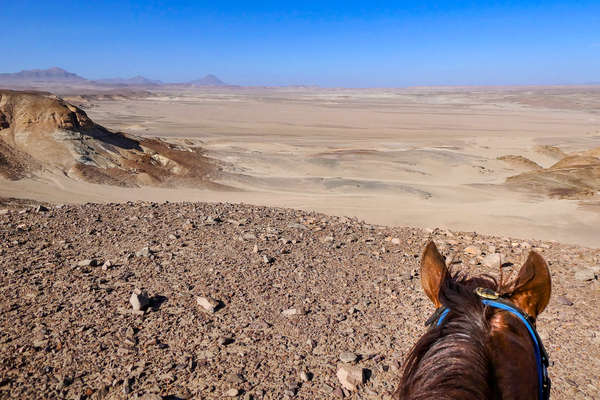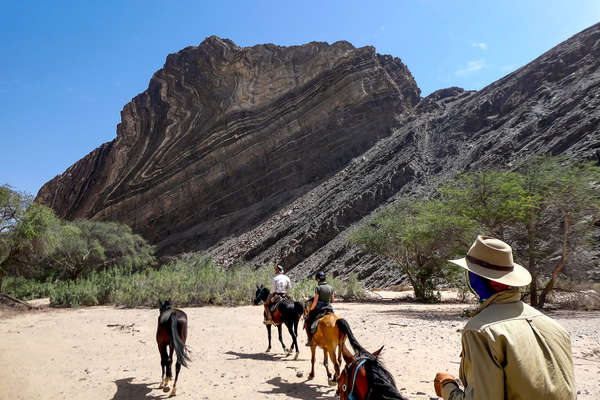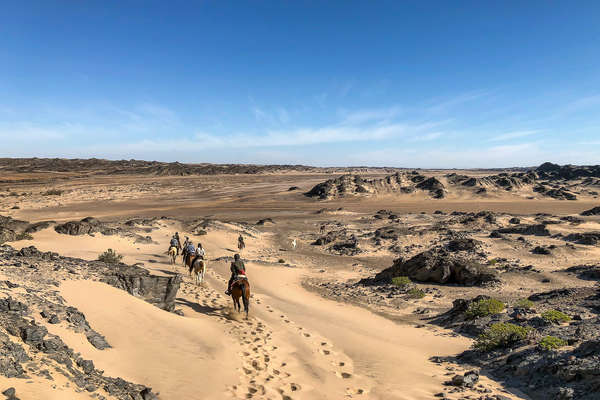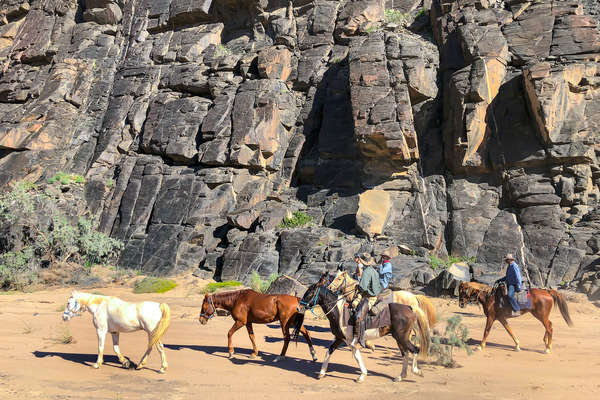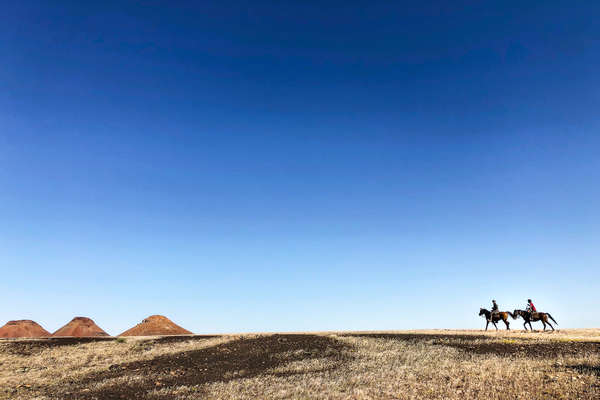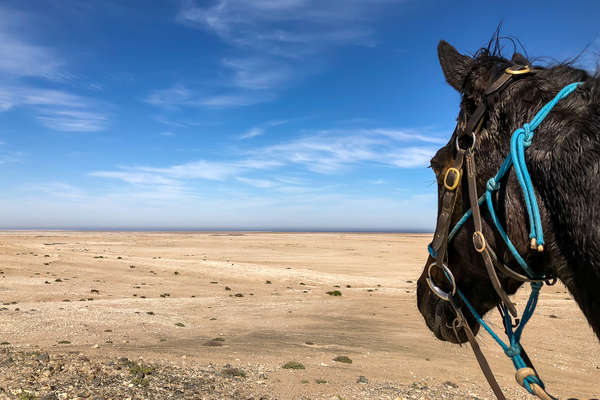Comfort
Most nights are spent camping in two man dome tents with camp beds and sleeping bags/swags. However, most people opt to sleep out under the stars which is a magical experience. If you feel the cold then we recommend taking a sleeping bag liner, as nights in the desert can drop below zero.
Showers are available every night (hot water). It is however not possible to wash your belongings during the ride.
Small batteries can be charged in the back up vehicles if necessary. Phone signal is very limited and there is, of course, no wifi!
On other nights you stay in a comfortable lodge with twin rooms.
Meals
Whilst on the trail, meals are cooked over an open fire and are of excellent quality.
Breakfast usually consists of porridge or cereal with tea and coffee.
Lunch: proper meals cook by the local team.
Dinner will be meat (beef or lamb usually) with vegetables and a dessert.
Drinks are included throughout the trail except on the first and last night when you are in a lodge.
Vegetarians and special diets can be accommodated with advance notice.
Climate
The seasons in Namibia are the reverse of the UK and so October - March is hot and dry. The early summer is a very dry heat, but some rain can occur around December - January when the climate can be more humid. The rides do not run during these months as it is too hot.
From April to September, the winter months, the weather is usually cool and dry. The nights can be cold, dropping to zero or below, but the days are sunny with a beautiful blue sky. Daytime temperatures are usually 15-22c. Mid-winter (June-August) is cooler than the spring/autumn months of April/May and September.
Tips
Tips are welcome and we recommend c. £10 per person per day and you should give this to your guide who will distribute it amongst all the staff. If possible, euro, USD or even better African Rands are preferred since pounds sterling are difficult to exchange in Namibia.
Packing list
Although this is a camping expedition, all bedding and towels are supplied. If you feel the cold then we recommend taking a sleeping bag liner, as nights in the desert can drop below zero. Please make sure to keep your packing to a minimum (see below).
Head
- Equus Journeys strongly recommend that you wear a riding helmet and that you take your own to ensure a correct fit.
- Sunhat for when not riding
- Sunglasses - with a cord attached so they don't fly off when riding
- Buff or bandana (essential)
Upper body
- Long sleeved shirts provide protection from the sun and thorns
- T-shirts
- Fleece, jumper or jacket - the evenings can be cold
- Waterproof jacket - the rains can be difficult to foresee and it's better to be prepared. Layering is key to cope with the fluctuations in temperature between day and night
- Casual clothes for the evening
Legs
- Lightweight, comfortable riding trousers or jodhpurs - we recommend riding in them at home before taking them on holiday to ensure they don't rub
- Shorts for non-riding trips
- Casual clothes for the evening
Hands and Feet
- Comfortable riding boots. We recommend short boots with half chaps but you may wish to take long chaps to protect against thorns. We don't recommend taking your favourite long leather boots in case they get damaged
- Sandals, flip-flops or trainers for moving around the lodge and camp
- Gloves - your hands are particularly exposed to the sun whilst riding
Nightwear
- Thermals are a good option for sleeping in, or tracksuits
- A woolly hat when camping
- Warm and comfortable sleeping sacks are provided, but if you feel the cold you may wish to bring a fleece liner as an extra layer
Other useful items
- Swimsuit
- Sarong (for going to/from showers)
- Binoculars for viewing game
- Camera and high capacity memory card. Spare battery
- Bumbag for carrying your camera and small items whilst riding
- Headtorch or small torch for moving around camp at night
Medical kit
- Sunscreen and lip balm - must be high factor
- Insect repellent, preferably containing deet
- Any medication you regularly take
- Blister plasters in case of any rubs
- Antiseptic cream, plasters, aspirin, anti-histamine, insect-bite salve etc...
- Spare prescription glasses/contact lenses
- Ear plugs, particularly if you are a light sleeper
- Anti malarial tablets and Yellow Fever Certificate if required (check with your doctor)
Our Recommendations
- Please don't take a hard sided suitcase. Your luggage should be soft sided and you should pack it into two bags if it weighs more than 15kg so it's easier for the team to transport between camps
- Wherever possible you should wear neutral colours, such as beige, brown or natural bush colours for riding as bright colours, such as red, yellow or white can startle the wildlife and they will see you long before you've seen them
- We recommend travelling in your riding boots and carrying your hat and some riding clothes in your hand luggage - then if your luggage goes astray you are still able to ride!

